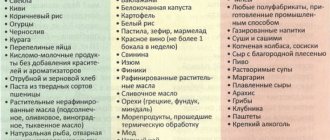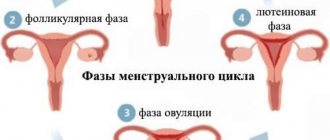Hello, we are glad to see you on the blog pages. It happens that childbirth occurs earlier than expected. We all know that now premature birth is not a rare case, and babies born at 8 months are exactly the same as those born on time. But still, the development of an eight-month-old baby in the first year of life is slightly different from its full-term peers. Read the article to the end and you can find out how a toddler born prematurely grows.
- Peculiarities
- Development up to a year by months
Features of the development of an eight-month-old baby
Hello, we are glad to see you on the blog pages.
It happens that childbirth occurs earlier than expected. We all know that now premature birth is not a rare case, and babies born at 8 months are exactly the same as those born on time.
But still, the development of an eight-month-old baby in the first year of life is slightly different from its full-term peers. Read the article to the end and you can find out how a toddler born prematurely grows.
- Peculiarities
- Development up to a year by months
Peculiarities
A baby born in the 8th month of pregnancy (34–37 weeks of pregnancy) belongs to the 1st degree of prematurity (there are 4 in total). The weight of such a baby doll should be more than 2 kilograms.
Externally, a premature baby differs from its peers in skin color, and has virtually no subcutaneous fat. Although the internal organs are formed, they are not yet quite ready for full-fledged work.
It happens that 8 month old babies:
- no sucking reflex (rare)
- Problems with the lungs, which are not yet ready for the first breath. In such cases, doctors help babies
- Problems with stool. The digestive system is not ready to eat food, so babies born prematurely suffer from dysbiosis
- The likelihood of developing rickets is several times higher than that of full-term baby dolls
The above features are rarely found in 8-month-old children; they most likely relate to the 3rd - 4th degree of prematurity.
From 0 to 12 months
Now let's take a closer look at how an 8-month-old baby develops.
And although each child is individual and each has its own pace of development, there are still some standards that doctors rely on when they make a verdict whether the baby’s development is proceeding correctly or not.
Every mother should know these standards so that she can notice deviations in time and seek help, because sometimes lost time is very expensive.
1 month
The first month of life is very important and not easy for both mother and baby. The baby is very lethargic, sleeps a lot, eats poorly and, therefore, gains weight very poorly. If the baby was born before 34 weeks, then most likely he will be on artificial ventilation and fed with a tube, since he is not yet able to breathe or eat.
2 months
The process of weight gain begins to be more fun. It is not uncommon for babies to gain more than the norm, and more than full-term peers.
But, despite this, he is still very weak and gets tired very quickly, even ordinary feeding takes a lot of strength from the baby doll. And the baby eats often and in large quantities, and it is best if its nutrition is mother's milk.
If mommy notices something about the little one that seems suspicious to her, she should definitely consult a doctor. Especially if it is:
- Scream from touch
- Convulsions
The baby's first achievement is weak attempts to lift her head from a position lying on her tummy.
3 months
Usually by 3 months the baby’s weight doubles. Facial expressions appear and the gaze is fixed.
The mother should often walk with the baby in the fresh air, dress him according to the weather, and very carefully select an outfit for the baby doll, because overheating or hypothermia is very dangerous for a fragile body (in general, this applies to all children). During sleep, the mother should constantly turn over baby, don’t let him sleep on one side.
4 months
It's time to start the massage. The child knows how to hold his head up, smiles, and examines an object of interest to him. If this does not happen, the mother is simply obliged to equip the little one and go for a consultation with a pediatrician.
By the way: Gymnastics for babies and massage are done by the mother every day, but it is better if a specialist conducts 1 session per month. Massage is very important in the first year of life.
5 months
Malyupasik actively moves his small legs and arms and even tries to grab a bright rattle, smiles cheerfully (more selectively), and you can increasingly hear “aha” from his mouth.
6 months
Weight increased approximately 3 times. The child laughs loudly and merrily, babbling something that only he understands, and maybe also his mother. Reacts to sounds and understands which side they are coming from. Babies born at 8 months are already able to match their peers born at 9 months in terms of physical development.
Important: You should not run ahead of time and sit the little one on his butt, this is fraught with consequences for the fragile spine.
7 months The quiet days for mom are over, as the baby began to master turning over. Leaving the baby doll alone is strictly prohibited, even for a second.
The psycho-emotional formation of the toddler enters an active phase and begins to proceed more rapidly. The child recognizes the faces of familiar people and joyfully greets them with cheerful chirping and laughter.
The first attempts at crawling are possible.
8 months
Tries to sit up, moves around a lot. Tries to get a toy, approaches it by crawling or on his belly. Mom can try to feed her pet with a spoon, because she has been dreaming about it for so long.
9 months
The child, already strong enough, can sit and tries to stand on his feet. The mother must constantly be close to the cub in order to have time to catch it.
10 months
Now your child not only stands confidently, holding on to a sofa or other support, but also takes his first hesitant steps. Loves to play with toys. Reacts to his name, can pronounce sounds very similar to the words mom, give, yes. Mom can begin to develop speech, for now it is enough to sing, talk, read fairy tales and poems.
11 months
The fidget crawls quite confidently, sits down, and holds its balance much better, which means it falls less. Some little ones are already taking their first steps. The child understands perfectly well when adults address him, he is able to fulfill simple requests, give a ball, and crawl when his name is called.
12 months
All boundaries are erased, your child, with proper timely development, will be absolutely no different from other children.
I would really like to know the stories of mothers who gave birth prematurely, and how they developed their little ones. We are waiting for your comments.
We hope that you did not waste your time reading and, as a thank you, do not be lazy to share the publication.
Thank you for your attention!
Recommendation
Free webinar by Lena Danilova “Physical development of children from birth to 3 years.”
MORE >>>
Source: https://vitalkin-blog.ru/osobennosti-razvitiya-vosmimesyachnogo-rebenka/
Premature baby 7 months
Babies born from 22 to 37 weeks of pregnancy are considered premature. A premature baby of 7 months usually catches up with his peers by the age of three months. After reading the article, you will find out what consequences premature babies can face.
Over the past couple of decades, medicine has learned to save the lives of even very premature babies born after 22 weeks. At the same time, doctors note that babies born so early are very vulnerable to complications. In a premature baby born at 7 months, the consequences may appear even at school age or a little later.
Mortality from defects in children born weighing less than 1 kg is about 50%. This indicator decreases with increasing birth weight. A premature baby's chances of survival increase every week.
The condition of babies born prematurely depends primarily on what week of pregnancy they were born. These babies will not survive without medical care and special equipment. But those born after 34 weeks usually need little medical care.
Approximate prognosis for premature babies
A premature baby born at 23–24 weeks weighs no more than 500 grams. His organs are not yet fully developed and are not capable of functioning. Immediately after birth, they enter an incubator and are connected to equipment that supports its vital functions.
Premature babies cannot suck, breathe or maintain a constant body temperature on their own. Subsequently, they will be subject to constant medical supervision.
Premature babies who come into this world a little later between 28-30 weeks weigh about one and a half kg, and those born at 34-36 weeks about two kg. The latter, even if they should be in an incubator, do so only for a short time (up to several weeks) and already by three months they catch up in the development of timely born children who were born with a normal weight.
Premature baby 7 months and earlier: consequences
Infants born prematurely or with low birth weight are susceptible to frequent infections. The most common health problems include:
- visual defects (retinopathy);
- cardiovascular failure;
- disorders of the central nervous system.
According to experts, premature babies are more than ten times more susceptible to respiratory tract infections, especially in the fall and winter, than babies born on time. In the first months of life, up to 35% of them suffer from respiratory tract infections.
Read : Premature babies, consequences in the future
It should be remembered that a child born prematurely has immature immunity, as the antibodies that are necessary to fight infections. Children receive from their mother only at the end of pregnancy. Therefore, premature babies require special care during skin care procedures.
Every fifth child born prematurely has developmental delays. These delays can be observed in the first months of the baby’s life, but as a rule, they smooth out over the course of 2-3 years of life.
Rehabilitation is important, which all babies born prematurely must undergo. Most premature seven-month-old children develop correctly, although some of them, most often after five years, develop disorders.
Studies conducted in various countries show that after five years of life, every fifth premature child exhibits some kind of developmental disorder. Children born prematurely often do worse in school, especially in the early years.
They are weaker in solving mathematical problems, have difficulties with foreign languages, reading, and concentrating. Most of them require additional training. There are also difficulties in raising premature babies. They often have emotional problems, particularly with concentration.
As they grow older, prematurely born children make up for lost time in development. At the age of 19, in principle, they do not differ in level of intelligence from their peers.
What are the dangers of childbirth at 8 months of pregnancy?
Premature babies are often born. Childbirth at 8 months of pregnancy is too dangerous for both mother and child due to the risk of ruptures due to malpresentation, hypoxia, and an undeveloped fetal system. It is important to prevent premature delivery.
Possible complications
Women begin to feel contractions at 8 months of pregnancy. For some, these are training cramps, while for others they become a sign of the onset of labor. It is advisable that at this moment the expectant mother is in the hospital, as there is a risk of the baby being born quickly.
Is it possible to give birth at 8 months of pregnancy? At this stage, birth is considered premature; the child’s body has not yet fully formed. It is not advisable to give birth to a child prematurely, as this will lead to complications.
Why you can’t give birth at 8 months of pregnancy:
- the respiratory system is not fully formed;
- weak blood vessels and soft bones of the fetus;
- incorrect presentation;
- risk of hypoxia.
In the last weeks, the respiratory system finishes forming. If a baby is born at 8 months of pregnancy, the alveoli do not yet produce surfactan, which makes the lungs mature. Therefore, the baby will need an artificial respiration apparatus.
The newborn’s body begins to take the correct position closer to the time set by nature, so at 8 months the fetus is still in a breech or transverse presentation. If labor begins prematurely, it will be very painful and end in the death of the fetus. In such cases, there is not always time to perform a caesarean section.
Even if the child enters the birth canal head first, injuries cannot be avoided. The cervix is still closed, and this will provoke deformations of the skull and other parts of the skeleton. There is a possibility of hemorrhage in the brain from burst vessels.
Due to active contractions of the uterus, the supply of oxygen stops, causing hypoxia to develop. These problems at the birth of an eight-month-old child will negatively affect subsequent development.
To avoid this, the hospital takes measures to carefully conduct childbirth.
Childbirth in the eighth month of pregnancy is not without consequences for the mother. A woman experiences ruptures in the birth canal and perineum.
After premature birth, hormonal levels are disrupted, there is a possibility of uterine bleeding and subsequent disruption of the menstrual cycle. The discharge of amniotic fluid leads to infection entering the uterus, which causes the development of endometritis.
Causes of premature birth
The birth of a child at 8 months is provoked by factors related to physiology and health. Gynecological infections and intrauterine interventions make the cervix incompetent for bearing a large fetus. Anomalies are also caused by defects such as bicornuate or intrauterine septum.
Causes of early birth
- cervical incompetence;
- malformations of the genital organs;
- fibroids;
- diseases;
- gestosis;
- Rh factor;
- multiple births;
- pathologies in fetal development.
If a woman developed fibroids before pregnancy, this will cause improper placement of the placenta, which will also lead to premature birth. Neurology, endocrinology, hypertension, heart defects are risk factors when carrying a baby.
Dropsy in the last trimester of pregnancy is an alarming symptom that leads to preeclampsia. Kidney function is impaired, causing a sharp rise in blood pressure, and premature birth begins. Most often this occurs during multiple pregnancies.
Rh conflict, chromosomal abnormalities in the fetus, infection in the womb and developmental pathologies not only provoke the birth of a baby ahead of schedule, but are also a reason to terminate the pregnancy. There is a very high risk of stillbirth.
How to induce premature labor at 8 months:
- prostaglandin is prescribed;
- perform a medical abortion with Mifegin;
- pour a saline solution into the amniotic fluid;
- open the amniotic sac.
The last method of arranging artificial birth at 8 months is used in extreme cases when there are contraindications to other methods. Medical abortion and the use of hormonal drugs kill the fetus, but after saline filling there is a risk of giving birth to a viable baby with developmental disabilities.
Prevention measures
It’s bad to give birth at 8 months, so every obstetrician tries to bring the pregnant woman to her due date. With the help of sedatives, they relieve the excitability of the uterus and suppress contractile activity. By acting on the receptors with tocolytics, the uterus relaxes. To exclude infectious complications, antibacterial therapy is used.
If the waters break during the 8th month of pregnancy, labor can still be suspended, but for this the woman is placed in a hospital. The mother is prescribed bed rest and 24-hour monitoring of the condition of the fetus.
Basic prevention is recommended to begin before pregnancy. The woman undergoes a full examination to identify pathologies in the development of the genital organs, studies the hormonal profile, and treats somatic diseases.
If the expectant mother has a negative Rh factor, then in the last trimester of pregnancy it is better to abandon the home regime and go to the hospital for conservation to eliminate the threat of premature birth. This also applies to women who become pregnant through IVF. In this case, there is a risk of developing multiple births.
If the cervix is incompetent, prophylactic cerclage (application of holding sutures) is used. If the ultrasound shows a problem, the procedure is performed transvaginally. The sutures are removed before the baby is born.
The second way to slow birth is to use a pessary. The product closes the cervical pharynx, causing a redistribution of the pressure exerted by the fertilized egg.
The normal course of pregnancy also depends on the woman herself. An unhealthy lifestyle, bad habits, depression and negative outbursts of emotions can provoke the threat of early childbirth.
A pregnant woman should not lift heavy objects and minimize travel on public transport.
If there is a clear predisposition to early childbirth from the eighth month, it is better to exclude intimacy with a sexual partner.
Behavior during childbirth
If, despite all precautions, labor begins in the 8th month, there is no need to panic, but you should immediately call an ambulance. It is recommended to lie on your side, taking a sedative (motherwort or valerian), as well as 2-3 tablets of No-shpa.
As soon as a pregnant woman with a threat enters the prenatal center, it is determined at what stage the process is. If symptoms indicate that it is no longer possible to stop labor, the woman is sent to the delivery room.
A pregnant woman is given a drip with medicinal solutions to normalize blood circulation in the placenta. If necessary, tablets are also given. Dexamethasone is indicated to calm the baby's pulmonary system.
Obstetricians act quickly, since premature birth occurs more quickly than planned due to the smaller size of the fetus. The expectant mother should help the medical staff with her behavior. If a woman panics too much, the uterus will become toned and complicate childbirth.
The midwife will try to ensure that the baby is born alive and naturally. A prerequisite is a dissection of the perineum in order to reduce the degree of pressure on the bones of the newborn baby. Caesarean section is considered the most extreme method when the life of mother and child is at risk.
The first days after birth
Premature babies are received in warm diapers and resuscitation measures are immediately carried out. For such babies, there is a specialized department equipped with equipment in the maternity hospital. The child is connected to life support machines.
In the first days (and sometimes weeks), a premature newborn is kept in an incubator, which is an imitation of the mother's womb. If the baby is moderately premature, a heated table is used.
Humidity and temperature conditions are created in the incubator. Sensors for measuring indicators are connected to the baby, which provides round-the-clock monitoring of the newborn’s well-being.
All medicinal manipulations, as well as feeding, are carried out through a window in the incubator. Bathing is excluded at this stage; the baby’s body is wiped daily with damp disinfectant swabs.
The babies are taken out of the incubator when the weight reaches more than one and a half kilograms. The room continues to maintain optimal air temperature. Periodically, the newborn is allowed to breathe humidified oxygen.
To eliminate attacks of asphyxia and breathing disorders, systematically change the position of the baby in the crib. In this case, the headboard should be slightly raised.
A premature baby is discharged from the maternity hospital, if he is healthy, no earlier than after 2 weeks after birth. The indication for this is the baby’s weight; it should be at least 2200 g with an increasing tendency.
At home, the mother strictly monitors the child’s weight gain to prevent the development of anemia. Children born at 8 months have developmental disabilities. Children show signs of underdevelopment of the central nervous system, blood vessels, and digestion.
The respiratory system is imperfect, accompanied by periodic apnea, which leads to pneumonia.
Increased permeability of the vascular walls leads to impaired blood circulation. Sometimes there is a cerebral hemorrhage. Premature babies lack swallowing and sucking reflexes and have reduced tolerance for food. The immune system is not strong enough, the body's resistance is reduced. The newborn has a hard time suffering from infectious diseases and is predisposed to rickets.
If a child was born at 8 months old and has complications, parents will have to prepare themselves for the hard work of raising the baby. Such a child is given more time, since his physical and mental development slows down.
When a woman was unable to complete the entire pregnancy and the baby was born at eight months, there is no need to worry ahead of time. If the birth took place in compliance with the rules and there were no complications, the newborn is quite viable, but will be weaker than other children and more often susceptible to illness.
Source: https://rozhau.ru/process/chem-opasny-rody-v-8-mesyacev/
Premature baby - chances of survival
How do babies gain weight? The gynecology staff on duty panicked. In the evening, they gave birth to a “filling” - an abortion was performed on a woman at 26 weeks for social reasons. The silent fetus was wrapped in a diaper and laid out outside the window - no need to run to the morgue at night? The failed mother left immediately after the abortion - she had five years of age waiting at home. And suddenly, in the dark, dark silence, crying was heard outside the window. Plaintive, squeaky. The nurse and orderly, crossing themselves, approached the window - the bundle was moving... I won’t bore you, I’ll tell you the continuation of the story right away. Nature has endowed newborn children with unprecedented vitality. The cold forced the baby to take his first breath and scream. With trembling hands, the nurse took out the package, unfolded it and placed it on the changing table. The baby squeaked, moved his thin arms and legs, and weighed only 800 grams. Women in white coats looked at this miracle as if spellbound. But the “miracle” stopped moving, screaming and breathing. Sighing, the nurse wrapped him in a diaper again and put him out the window. It was night. I didn't want to sleep. The women listened intently and suddenly... yes, yes, again - a squeak! Here the pediatrician on duty was already called, who began to cast a spell on the baby, who did not want to leave this world. The child survived. And when he was 4 months old and gained 2.5 kg, his mother suddenly came running. She lived on a distant farm and rumors about the “surviving flood” did not reach her immediately. She hugged me, pressed her to her chest, and cried. She said that she decided to have an abortion under the influence of stress - her husband lost his job, and she already had a lot of children. I couldn’t forgive myself for this weakness later, I prayed. In general, this story has a good ending. “Baby” is now many years old and he, the only one of all the children in the family, graduated from college, returned to his native place as an agronomist and helps his parents a lot. This story is also unique in that the extremely premature baby survived without an incubator or a neonatologist.
Which children are viable?
The concepts of “viability” and “live birth rate” are different. It is clear that children born prematurely at home, in a regular maternity hospital and in a modern perinatal center have completely different chances of survival. And this is already a legal moment, affecting the concepts of “failure to provide assistance” and “intentional murder.” From a legal point of view: “viability is a state in which the development of tissues, organs and systems of a newborn ensures its independent life outside the womb.” From the point of view of doctors : live born - a fetus that exhibits at least one sign of life: heartbeat, breathing, pulsation of the umbilical cord, muscle movements. Previously, babies were considered viable if they were born at 28 or more weeks, had a weight of a kilogram or more, and a height of 28 cm. Children born at an earlier stage and with lower height and weight indicators, they were considered unviable and were registered in the registry office only if they survived. Since 1993, the situation has changed. Children born at a period of at least 22 weeks, weighing at least 500 grams and having a height of 25 cm or more are considered viable. Among those born prematurely, the following are distinguished:
- with extremely low weight (0.5 -1.0 kg);
- with low weight (1.51 - 2.5 kg).
with very low weight (1.01 - 1.5 kg);
Very low birth weight babies are now called “potentially viable”.
This factor largely depends on the conditions, but even average statistics show that medicine is developing and doctors are saving the lives of an increasing number of children with very low weight.
| TERM | 1995 | 2015 |
| 22-23 weeks | 1% | 10% |
| 23-24 weeks | 11% | 20% |
| 25-26 weeks | 27% | 60% |
| 27-28 weeks | 45% | 80% |
Do doctors save very low weight children?
Yes, in our country they save. This is determined by order of the Ministry of Health of the Russian Federation No. 372 dated December 28, 1995: “If even one sign of live birth is noted, the child must be provided with both primary and resuscitation care.”
If premature birth is known in advance, the baby should be met in the delivery room by a neonatologist who will organize timely treatment and, if necessary, transport the baby to a specialized medical facility.
Other countries have different laws. So, in England, a child weighing from 500 to 999 grams will be saved only when his relatives insist on it. This is explained simply: the costs are high, and the survival rate is low. In addition, among the surviving children with extremely low weight, many have serious pathology that requires further expensive treatment.
Did you know that children born weighing 1 kg are registered with the civil registry office immediately, and those born weighing 500-999 grams are registered only after they have lived for seven days?
There are many reasons. The most significant:
- cervical insufficiency (if the suture is not applied in time);
- anatomical features of the uterus;
- maternal infections;
- fetal malformations.
More often, premature birth occurs in pregnant women who are too young and those who give birth after 35 years, heavy smokers and those who are addicted to alcohol.
Are premature and immature the same thing?
No, these are different states.
- Premature baby - born prematurely.
- An immature child can be born at any stage, but his organs and systems are not yet mature enough for him to live independently.
Moreover, almost always a premature baby is immature. But not everyone who is immature is premature. Immature full-term babies need adequate medical care in the same way as premature babies.
Signs of prematurity:
- wrinkled red skin;
- the entire body is covered with hairs (lanugo) and abundant cheese-like lubricant;
- a weak cry resembling a squeak;
- intermittent breathing with a tendency to apnea (stopping breathing at the slightest exertion);
- imperfect thermoregulation - the baby easily overheats and becomes hypothermic;
- decreased or even absent sucking reflex;
- thin ears and fingers, actually “transparent”;
- gaping genital slit in girls, absence of testicles in the scrotum in boys.
My children were born full-term and mature. And your?
Breastfeeding premature babies. Part 1.
Breastfeeding premature and low birth weight babies. Part 2
How to care for a premature baby and what to pay attention to after discharge?
Source: https://viline.tv/deti/article/nedonosennyj-rebenok-sansy-vyzit-na-raznyh-srokah
What should a child be able to do at 8 months: speech, movements
8 months for a child is a time of active physical and psychological development. The baby learns to crawl, stand on his feet, and tries to take his first steps. Speech and emotional perception of the world are actively developing.
What physiological changes have occurred?
By eight months, babies become very active. They move a lot and are interested in everything around them. What physiological changes have occurred by this time:
- The baby's memory becomes deeper. He repeats his parents’ actions, recognizes objects, reacts to familiar songs and rhymes, and enjoys close people.
- Teething is actively progressing.
- The child rolls over, sits, crawls, stands.
The muscles are strong, allowing him to make complex and previously inaccessible movements. - The baby's stool is now more formal and different from the stool of children who are fully breastfed. The smell of the stool is not strong; the baby usually poops once a day.
Physical development of the baby
The physical development of a baby depends on heredity, on individual physical characteristics, on his emerging character and behavioral characteristics.
What should a child be able to do?
Although all children develop at their own pace, there are certain skills by the presence of which the degree of development of the baby is assessed. Average standards - what a child should be able to do at 8 months:
- play for up to 10 minutes on your own;
- crawl in accessible ways (most often on all fours);
- try to stand up while holding onto support;
- from a standing position, sit on your butt (or fall on your butt);
- take steps holding the hands of adults;
- sit down independently, turning over from your back, tummy, helping yourself with your arms;
- sit for a few minutes;
- drink from a cup, eat from a spoon;
- grab small objects, transfer from one hand to another;
- pick up small things with your thumb and forefinger.
Exercises for physical development
To help your baby's physical development, play with him. Physical exercises and games to develop muscles, balance, fine motor skills:
- Place the baby on his tummy and gently lift him up by his legs. Let the child rest his palms on the floor and try to “walk” on his hands.
- Roll a rubber ball under the baby’s feet and let him kick it.
- Spin around a little with your baby in your arms - this strengthens the vestibular apparatus.
- Place a wide cup of flour and fine grains in front of the baby. Let him touch her with his fingers, grab her. Be careful not to put anything in your mouth.
- Start potty training your child by sitting him down immediately after eating for a few minutes.
This is an introductory procedure; children begin using the potty confidently by the age of 1.5 years. - Ask your child to put scattered toys into a box;
- Assemble and disassemble the pyramid together, let your child play with the sorter.
- Give your child a cloth and ask him to wipe off the dust from his toys.
Connect your child to everyday life - it is interesting and educational for him. - Model with play dough.
Mental and emotional development
At eight months of age, a child’s mental development passes an important milestone. Psychologists call this time a crisis, a “period of alienation.” The baby understands well where relatives are and where strangers are.
The child is afraid to part with his mother, and even a short separation is painful. Do not ignore this fear; the child has learned to sense danger. Be close to him, create a feeling of security.
Over time, the child will understand that you are nearby, you will not disappear anywhere, and fears will dissipate.
Skills and abilities at eight months of age
The child has made a big breakthrough in the psycho-emotional sphere. The child shows emotions more clearly and recognizes speech and intonation well.
Development of the psyche and emotions - what a child of 8 months should be able to do (a girl and a boy, as pediatricians assure, generally go through the same stages of development):
- reacts with surprise to unfamiliar sounds, strives to find out, see what it is;
- clearly distinguishes between friends and strangers; if a child treats both parents and strangers in the same way, one should be wary;
- concentrates well and is able to return to an interrupted game after a short break;
- masters cause-and-effect relationships;
- imitates the movements and emotions of the parents;
- understands the prohibitions, is wary, offended by the strict tone;
- understands requests and questions “give”, “where”;
- shows with gestures where he needs, what he wants, what he hit and with what;
- girls show musicality earlier than boys - they try to sway to the beat of music, songs, and stomp their feet;
- examines objects by touch, strokes unfamiliar surfaces with his palm or finger.
Developmental activities
Simple daily activities in the form of games will help your baby develop faster and more harmoniously.
Examples of developmental activities:
- A child at the age of eight months shows fear of unfamiliar people and sounds. Dispel these fears. When frightened, speak kindly to the child, hug, stroke.
- Play with construction sets, pyramids, and sorter toys with your child.
Start the game together: you tell them what you are doing, name the objects and colors. Then the baby plays independently. - Teach your child to play pats with you, teach him to wave his hand goodbye, and clap his palms on the floor.
- Teach your child to fulfill simple requests: stomp your feet, stretch out your arm, wave, clap your hands.
Child speech development
The child continues to develop speech, pronounces individual syllables, and tries to combine them into simple words. Help your child accumulate a vocabulary at this stage: talk about everything you see, say the names of objects and actions - this is called a passive vocabulary of words that the child does not yet know how to pronounce, but already understands their meaning.
Speech skills and abilities
At the age of eight months, both boys and girls are able to analyze and correlate actions and events. They use sounds and syllables to attract attention and express emotions.
Speech development - what does a child do at 8 months:
- forms a passive vocabulary, understands what adults are telling him;
- calls parents, pronouncing the syllables “ma-ma-ma”, “pa-pa-pa”;
- tries to imitate the speech of animals after his parents when the parents show pictures in a book (meow, woof, meee, muuu, beee);
How to develop your baby's speech
The best help in developing your baby’s speech is to communicate a lot and actively with him. Look at children's books with your child, point at the pictures and tell them what is depicted in them. The more words a child hears, the more he understands, the faster his psyche and speech skills develop.
Listen to music books with your child, draw his attention to different sounds. Listening enriches the child by promoting language development.
Read poems to your child, sing songs, tell nursery rhymes and fairy tales.
Caring for an eight month old baby
A child at eight months old undergoes the same hygiene procedures in the morning. I wash my face, wash my face, brush my teeth.
Evening procedures include daily bathing, the child bathes with pleasure, now for him it is a game and entertainment.
If you are worried whether an eight-month-old child can be hardened, pediatricians say that it is possible and necessary. Start with daily air and sunbathing, airing the room. Lay out a wet towel, hold your baby by the arms, and let him run his legs over it.
Every day it is useful to do strengthening exercises and light massage.
Baby's daily routine
By eight months, the baby sleeps less and less and is awake more and more. The total duration of sleep is reduced to 15 hours (10 hours at night and 1.5-2 hours of daytime sleep.
The child is taken for walks twice a day: in the morning and in the afternoon. Feeding is reduced to five times a day, with intervals between them of 3.5-4 hours. To determine the approximate amount of food per day required for a child, the baby's weight is divided by 9.
Approximate daily routine for an eight-month-old baby:
| 6:30 | Waking up. First feeding (breast milk/formula). |
| 7:00 | Morning toilet, hygiene procedures. |
| 7:30 | Wakefulness. |
| 9:00 | Light gymnastics. |
| 10:00 | Second feeding. |
| 10:30 | Wakefulness, games. |
| 11:30 | Walk and first nap |
| 13:30 | Third feeding |
| 14:00 | Staying awake, active games, reading, educational activities with the baby. |
| 15:00 | Walk and second nap. |
| 17:30 | Fourth feeding. |
| 18:30 | Period of wakefulness, quiet games. |
| 20:30 | Bathing. |
| 21:00 | Fifth feeding (breast milk/formula). Hygiene procedures, preparation for night sleep. |
| Night | Breastfed babies wake up several times for night feedings, while bottle-fed babies sleep all night. |
Is there a difference in the development of boys and girls
There is no particular difference in the development of girls and boys at the age of eight months. But parents note that boys develop faster physically, and girls develop faster psychologically
Difference in development of boys and girls:
What can an 8 month old baby girl do? What can an 8 month old boy do?
| Actively and emotionally babbles, more often tries to interact through speech rather than through hand gestures. They learn to stand up faster and begin to try to walk earlier. | It is easier for boys to show something by pointing at it with their hands, or to pick it up on their own, than to try to express desires through sounds. They usually lag behind girls in speech development. Boys try to walk later than girls; they are quite happy with moving quickly on all fours. |
What problems arise
Eight months is a period of active growth and development of the baby. At this stage, parents face some problems:
- Refusal of complementary feeding. If a child does not like the consistency, taste, or temperature of a new dish, he actively shows his dissatisfaction by refusing to eat. Put off introducing a new complementary food, return to it later, when the baby is in a good mood, healthy and nothing bothers him.
- Bad dream.
If the baby is overexcited in the evening, he has too many events during the day (new acquaintances on a walk, going to new places), his sleep is disturbed. This is especially true for boys. Remember what a male child can do at 8 months: actively move around the house. Boys usually start walking later than girls, but they crawl more actively, using the entire house for play.If the boy is not calmed down by the evening, he gets so tired that it is difficult for him to relax. Give your baby a massage in the evening, offer calm games, sing a lullaby to help smooth the transition to sleep.
- Fear of mom's disappearance.
If a child cries, doesn’t want to let you go even for a second, or has a hard time even with a short separation, do not ignore his fears. Calm down, speak kindly to the baby, be close to him. Time will pass and he will calmly let you go. And during the transition period, be patient and nourish your child with affection and love. - Allergy to complementary foods.
To avoid the problem of an allergic reaction to complementary foods, use familiar, neutral foods. Do not give your child red berries, soy products, tomatoes, cocoa, citrus fruits, and do not rush to introduce milk, chicken and eggs. - Painful teething.
The appearance of teeth often brings with it moodiness, high fever, irritability and pain. Offer your child teethers. If the pain is severe, use painkillers. If your teeth hurt and you have a high temperature, give your baby an antipyretic with an analgesic effect, which your pediatrician will recommend.
Tips for parents
To ensure that your baby develops harmoniously and his environment remains cozy and safe, listen to these simple tips:
- If the child is not yet standing on his feet, do not worry and do not rush things. The baby stands up when the muscles of his legs are strong enough. When the time is right, he will begin training in an upright position.
- Do not overuse walkers.
If a child does not stand up on his own, it means that his legs and back are not strong enough. Being in a walker will put unnecessary stress on your muscles and spine. - Take care of your safety.
The child is crawling on the floor: remove from the floor small objects, vases and chairs that could tip over from the pushes of the child’s arms and legs. Remove the tablecloths, pulling the edges of which the baby will dump the contents of the table on itself. Keep all chemicals and medications locked up high. Do not leave your child in the room unattended. Vacuum and wash the floors every day - this way you will make sure that there is nothing dangerous for the baby on the floor. - Talk to your child often.
- Spend time on developmental activities, gymnastics and massage.
- Don’t forget to have some quiet activities before going to bed, read fairy tales, sing songs.
Love your baby, hug, caress, bathe in your love - this is the best fuel for fast and harmonious development.
0
0
20030
Source: https://littleone.com/publication/0-6520-rebenok-8-mesyacev-razvitie-i-chto-dolzhen-umet











